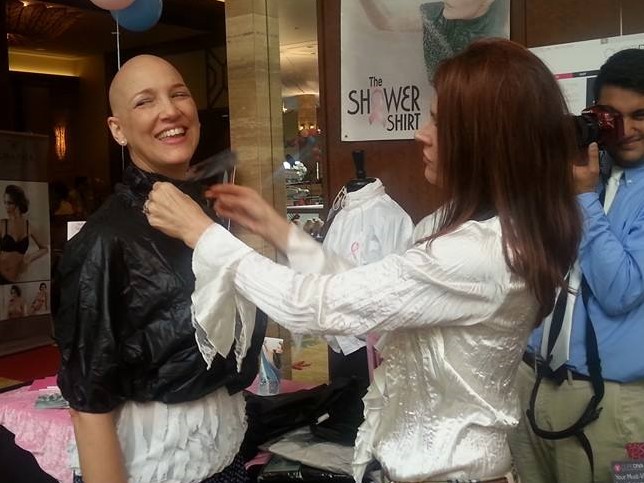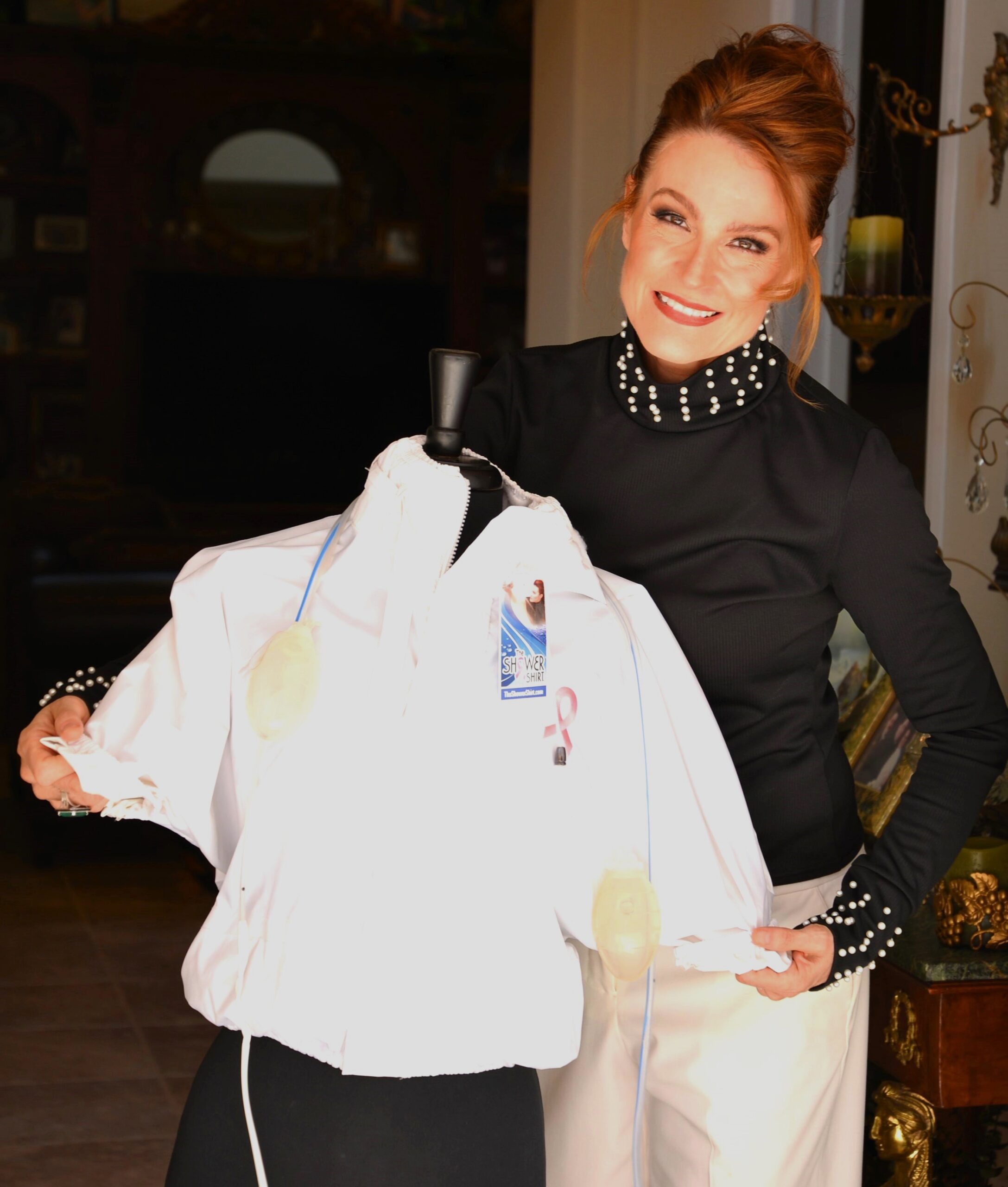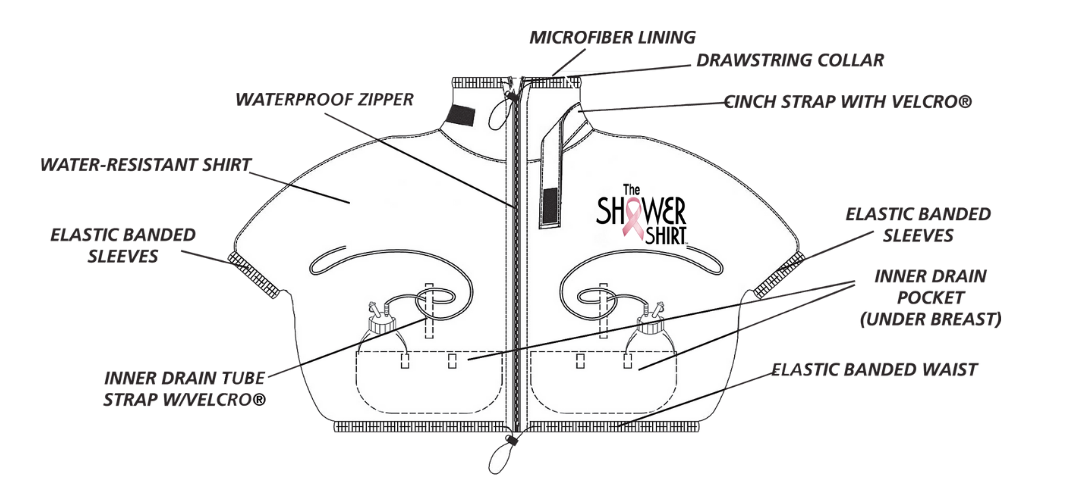In this insightful interview, we have the opportunity to explore the journey of a dedicated professional who has made significant contributions to both medical journalism and the healthcare industry. Raised in Southeast Missouri, with a strong work ethic instilled by a philanthropic father, our guest’s early life laid the foundation for a career that blends health, innovation, and compassion. From pioneering The SHOWER SHIRT® to navigating the evolving landscape of medical journalism, their story highlights perseverance, dedication, and a passion for improving patient care and understanding. Join us as we dive into the lessons learned, challenges faced, and the future of healthcare innovation through their eyes.

Lisa Crites Reflects on Her Early Life and the Values of Hard Work
I was raised in Southeast Missouri, on a farm. I have three brothers and a demanding, but quite philanthropic father, so we learned early on, about hard work, but also the importance of giving back within our community.
Lisa Crites on Her Passion for Health Journalism and the Evolving Healthcare Industry
From the time I was young, I loved health and wellness stories. Learning about alternative paths for good health. My parents thought I would eventually become a clinician and work in the medical field. I told them no; I just wanted to report on medical stories to better learn about the cutting-edge aspect of medicine, the business side, the innovative technological side, as well as the human-interest aspect of people who have overcome extreme medical illnesses. Healthcare is an absolute animal that changes consistently, from the payor mix to clinical specialties. Further, hospitals continue to merge with other hospitals and purchase large private practices, to employ doctors.
Lisa Crites on Balancing Journalism, Entrepreneurship, and Philanthropy
I don’t believe I’ve ever been proficient at balancing my work life. I’m a bit like my father. I work, work, work, until I crash, for days. Then it’s cyclical as I can easily get lazy, in trying to focus on self-care. So, once I’ve rested entirely too much, I work, work, work, again, to get caught up with my writing projects and running The SHOWER SHIRT® company. I believe life is truly a balancing act. When I was a television health/medical broadcast reporter, it was a 24-hour-a-day, 7-day-a-week job. Thus, I’m used to working long, hard hours. My broadcast journalism career was before being diagnosed with breast cancer. However, once diagnosed, my career trajectory changed. With that said, after inventing The SHOWER SHIRT®, I’ve still found print journalism opportunities to write about health/medical topics, so I still love being able to do that. Though, in terms of the initial question, I believe I will always struggle with balancing work, as it’s a difficult task to manage a company, while being a print columnist, along with my philanthropic work as I’m on four non-profit boards, but I’m beyond blessed with it all.
Lisa Crites on Overcoming Challenges in Bringing The SHOWER SHIRT to Market

First and foremost, being an entrepreneur is an extremely difficult road. One must have perseverance. One must believe their perseverance is stronger than that of any failure. I’ve said I was going to quit this ‘Shower Shirt’ journey on a few occasions. But I would then wake up the next morning to realize that quitting was easy. Persevering is tougher, and I’m tough, therefore, I was able to do more than I ever thought I could do.
I would also say fighting for The SHOWER SHIRT® patent. That was a risky and quite expensive venture. In the United States, it’s very, very tough to attain a patent. Luckily, our intellectual property was such that we were awarded a patent for both design and method of use. Our patent attorneys said we attained the ‘gold standard’ of patents. Many people work for many years to attain a patent, we were lucky to have been awarded one within a year of our initial application. Nevertheless, even over that year’s timeframe, it was not an inexpensive process, so a HUGE financial risk.
I would say the most challenging part was creating the prototype and then attaining the right manufacturer. I drew the initial schematic on a napkin. I gave that to my brother who is an engineer. My aunt and cousin created the prototype. We went through five prototypes before finalizing the product. I gave several prototypes to doctors to have them give to their patients to test. I can’t say we had HUGE setbacks, only positive feedback to better finalize that first order from our manufacturer. Since that time, we’ve updated the product only slightly but have launched larger sizes as it’s not a one-size-fits-all product.
Lisa Crites on Standing Out in the Medical Device Industry with The SHOWER SHIRT
To this day, we don’t have direct competition for The SHOWER SHIRT(R). There are other coverings for showering, but not shirts.
Lisa Crites on Overcoming Healthcare Business Scaling Challenges
Attaining an HCPCS code for Medicare and insurance reimbursement. Due to this challenge, we have decided to stay as a ‘self-pay’ product.
Lisa Crites on the Power of Networking in Healthcare and Business
I believe the best networking can be found by joining large GPOs, otherwise known as Group Purchasing Organizations. That way, a large membership base can quickly get to know your product. It’s putting the right people in place to purchase new and innovative medical products, under a large marketing umbrella.

Lisa Crites on the Role of AI in Healthcare Journalism and Patient Education
I believe AI is good for many things, but not as good as a medical doctor, nurse, or surgeon, in terms of education. Further, I believe people should also attain their education through known medical websites such as WebMD, or the National Institutes of Health, to make sure what they are reading is accurate, and based on evidence-based medicine.
Lisa Crites on How Journalists Can Bridge the Gap Between Science and Public Understanding
We can better bridge the gap between scientific research and public understanding by translating complex findings into accessible language, and by prioritizing clarity of content into a more ‘dummied’ down approach. The average person doesn’t know an overwhelming amount of medical terminology, so I believe as a medical journalist, we must find a balance for good translation. Avoiding medical jargon helps, focus on the ‘why’ and ‘what’ while explaining scientific findings as to how it relates to everyday experiences and better understanding.
Lisa Crites on How She Would Fix the Healthcare System with Unlimited Resources

The system has been created as a very large, powerful business. And it’s important for people to understand the business of healthcare. And it’s important for consumers to understand that doctors are not trained to heal you. Doctors are trained to treat in accordance with how they’ve been taught, and they’ve been taught how to do things that create companies more money but often fail to focus on the actual wellness of a patient. This is where I believe more alternative and holistic medicine is needed within the existing world of healthcare. Sadly, if it’s not evidence-based medicine, most clinicians will not treat patients with homeopathic options. Further, healthcare is also quite litigious, so practicing physicians are also ‘covering their butts’ in fear of being sued.

A Heartfelt Thank You from Leaders 360
On behalf of Leaders 360, I would like to extend our deepest gratitude to Lisa Crites for sharing her invaluable insights and expertise with us. Her dedication to medical journalism, entrepreneurship, and improving patient care continues to inspire us all. We are thankful for the time she took to connect with us and offer her unique perspective on the future of healthcare.
Lisa, your contributions to both the healthcare industry and your community are truly remarkable. We look forward to continuing to learn from your journey and the impact you’re making in the world.
Also Read:


